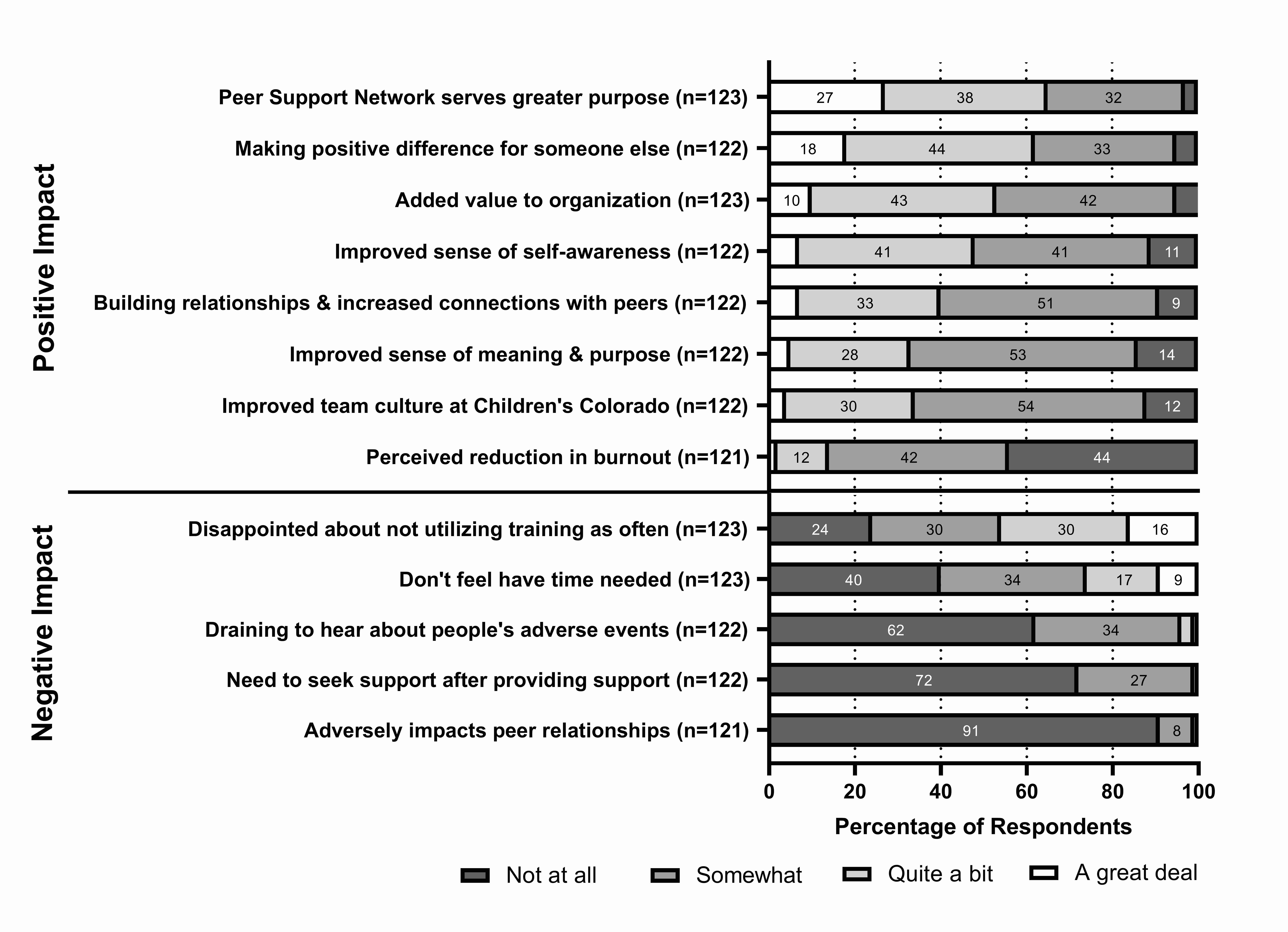Medical Education: Faculty Development
Medical Education 5: Faculty Development 1
522 - Positive Impact of Peer Support—Everyone Wins
Saturday, April 29, 2023
3:30 PM - 6:00 PM ET
Poster Number: 522
Publication Number: 522.227
Publication Number: 522.227
Lauren R. Anderson, University of Colorado School of Medicine, Aurora, CO, United States; Kami Wolfe. Schneider, Children's Hospital Colorado, Englewood, CO, United States; Michele Loi, University of Colorado School of Medicine, Denver, CO, United States; Heather DeKeyser, University of Colorado School of Medicine, Aurora, CO, United States; Jo M. Vogeli, University of Colorado School of Medicine, Aurora, CO, United States; Emily Muther, University of Colorado School of Medicine, Aurora, CO, United States; Christine waasdorp hurtado, Children’s Hospital Colorado, University of CO, Colorado Springs, CO, United States; Sonja I. Ziniel, University of Colorado School of Medicine - Department of Pediatrics, Aurora, CO, United States; jennifer Reese, University of Colorado School of Medicine, Aurora, CO, United States
- LA
Lauren R. Anderson, MD, FAAP (she/her/hers)
Assistant Professor
University of Colorado School of Medicine
Aurora, Colorado, United States
Presenting Author(s)
Background: Pediatric healthcare workers (HCW) are exposed to adverse events in the clinical setting. Negative downstream effects are common for those who experience these events. Prior studies show peer support is valued by HCW. Many institutions have implemented peer support programs, including the University of Colorado’s Department of Pediatrics. In 2018, a Peer Support Network (PSN) program was launched at Children’s Hospital Colorado. Literature on peer support has primarily focused on implementation. The few studies evaluating program impact on peer supporters (PS) found increased levels of burnout.
Objective: To describe the peer supporters’ experience, motivations, and barriers.
Design/Methods: A web-based survey of PS was developed with input from program leaders, peer support champions, and a survey methodologist. Content was reviewed by a group of PS and via cognitive interviews. Survey questions included demographic information, reasons for becoming PS, perceived barriers for offering peer support, and the positive and negative impacts of participation for the PS. The survey was administered via REDCap to all 167 trained PS during the spring of 2022. Descriptive statistics were used to analyze results.
Results: Survey response rate was 73.7%. Respondents were primarily female (83%) physicians (73%) who had been in practice post-training for more than ten years (64%). Top motivators to become PS included interest in getting involved with well-being efforts, desire to contribute, and desire to help after observing struggling colleagues. The largest barrier to offering peer support was current workload, followed by discomfort reaching out to a more senior colleague. The most highly rated positive impacts of PSN by PS were the beliefs that PSN serves a greater purpose, makes a positive difference for someone else, and adds value to the organization (Figure 1). The most identified concerns were time constraints and a feeling that peer supporter skills were not being utilized frequently enough.
Conclusion(s): The overall experience of PS was positive, suggesting the benefits of peer support programs extend beyond the value to HCW experiencing adverse events. As such, we aim to improve accessibility and utilization of PSN for the greater good of our hospital community. Results underline altruistic tendencies among PS who are focused on a greater purpose over personal gains associated with their role. To recruit, empower, and retain these individuals, it is important for programs to develop strategies to manage limited bandwidth and the perceived seniority hierarchy.

